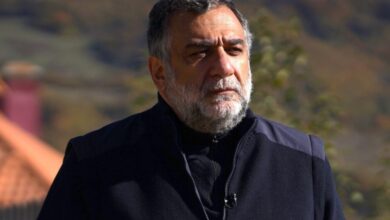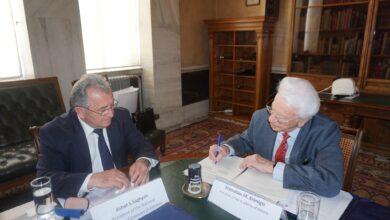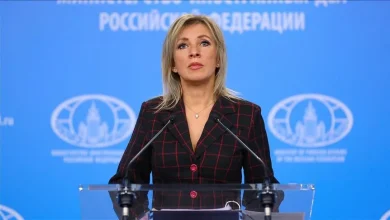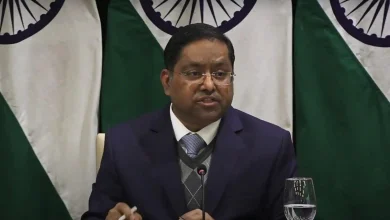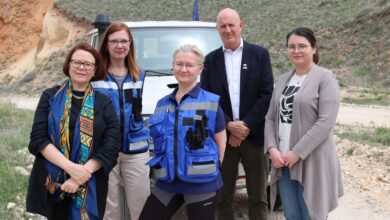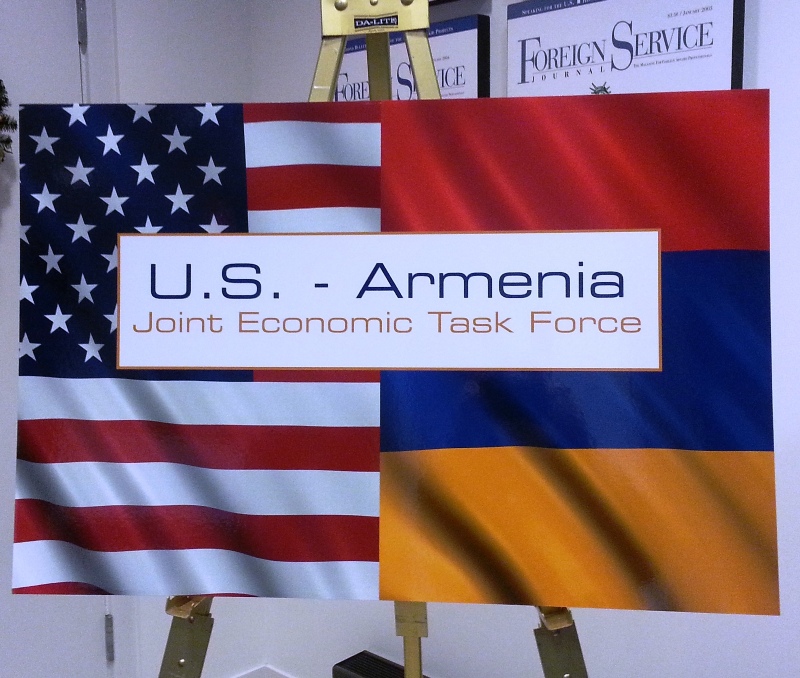
The Armenian National Committee of America (ANCA) today welcomed the realignment of the U.S.-Armenia economic dialogue away from primarily ‘donor-recipient’-based discussions and toward a focus on practical steps to promote a robust bilateral trade and investment partnership.
At a State Department press conference, held this evening at the end of a day-long meeting in Washington, DC of the U.S.-Armenia Task Force, the U.S. and Armenian government’s welcomed the formal announcement of a $180 million investment by the U.S. firm Contour Global in Armenia’s Voroton hydro-electric plant, the implementation of a new visa relaxation regime for business travelers, the selection of Armenia as one of 20 countries in USAID’s Science Technology Innovation Program (STIP) in the areas of energy independence and water management, Armenia’s edibility for a second Millennium Challenge Corporation grant, and, more broadly, an overall shift – long advocated by the ANCA – away from primarily aid-based discussions toward a trade and investment focused bilateral economic dialogue. The Voroton investment represents the single largest U.S. investment in the history of the U.S.-Armenia bilateral relationship.
“We welcome today’s meeting as a positive watershed in the history of the U.S.-Armenia economic relationship. The results of today’s talks hold the promise of a meaningful escalation, on a policy level, of this trade and investment partnership, and, on a more practical level, set the stage for sustainable future growth,” said ANCA Chairman Ken Hachikian. “We want to share our appreciation to all the stakeholders in this process, for their work and commitment to the U.S.-Armenia relationship. We very much look forward, in the spirit of the enduring American-Armenian friendship, to closely following the implementation of today’s decisions, to seeing the real-world results of these efforts, and to building upon today’s progress for the benefit of both our nations.”
Commenting to the ANCA following the meeting, U.S. Ambassador to Armenia, John Heffern, noted that the U.S. and Armenia are moving toward a “more mature relationship,” “getting away from the ‘donor-recipient’ model and focusing on the partnership model – a partnership model that does include assistance.” USAID Mission Director Karen Hilliard shared with the ANCA that the meeting was “very cordial, very fruitful, and of great mutual benefit,” noting, in particular, U.S.-Arenia comoperation to liberalize the aviation sector, which she hopes will have an “enormous impact” on tourism and cross-border trade.” She added that a key focus going forward will be energy diversification and water resource conservation, noting that USAID Director Rajiv Shah “has selected Armenia as one of 20 focus countries for applying science and technology to development problems and here today, we agreed to focus in on the energy and water sectors for that effort – which I think will bear tremendous dividends for Armenia in the future.”
Washington was represented at these talks by Deputy Assistant Secretary of State for European Affairs Eric Rubin, U.S. Agency for International Development Assistant Administrator Paige Alexander, and Coordinator for Assistance for Europe Daniel Rosenblum. U.S. Ambassador to Armenia, John Heffern, a consistent advocate for the expansion of bilateral economic relations also took part, as did USAID Armenia Mission Director Karen Hilliard. Rubin, speaking at the press conference, noted: “Today we held positive discussions on customs and tax reform, energy security and integration, workforce development, and, importantly, we discussed potential mechanisms to increase trade and investment between Armenia and the United States.”
Yerevan was represented by Minister of Finance Davit Sargsyan, along with representatives from the Ministries of Foreign Affairs, Economy, Justice, Energy and Natural Resources, and Nature Protection. Armenia’s Ambassador to the U.S., Tatoul Markarian, played a key role in both the preparations for this meeting and in today’s discussions.



